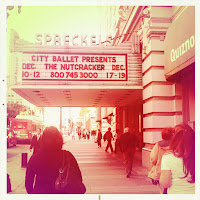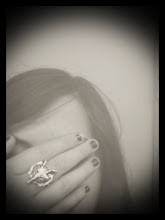Egyptian Princess, 2010
Amber Nething
Ink on Paper
I'm currently reading a book called 'Adam: God's Beloved' by Henri Nouwen. Nouwen has long been a favorite of mine; his book 'Life of the Beloved' has been instrumental in my growing to understand what it means to live as one whom God truly loves. A man who spoke frankly about deep issues of the heart, Nouwen was marked by significant loneliness and depression. His experiences taught him that suffering should be held in close, intimate regard by believers. It is as predictable as the sun in Summer that I should gravitate toward such things, but I do, so there you have it.
Nouwen spent the last years of his life living and ministering at L'Arche Daybreak, a residential community where people with and without disabilities live and work together. In his time there, Nouwen worked with and assisted a young man named Adam, who had profound disabilities. He would help Adam bathe, shave, dress, eat, walk, go to the restroom, and so on. In this incredible little book, Nouwen documents his relationship with Adam and describes his own journey from hesitancy to acceptance, from perceiving difference to acknowledging similarity. I have not even finished this book and it is already tiptoeing its way into my Desert Island five.
Understandably, reading this book has caused me to reflect on my own work. I spend my days at an arts based day program for adults with intellectual and developmental disabilities. I am a music therapist, one of those privileged few who is actually using their degree for its intended purpose. The people with whom I work are all 'profoundly disabled,' meaning that most of them function at a clinically diagnosed cognitive age of less than about 10. Most of them have few self-care skills, are non-verbal, and need assistance in the most routine of tasks. My days with them are filled with small actions seeking small victories: shaking a tambourine, lifting up an arm, making eye contact. Externally, we are engaged in the pursuit of the most basic, most mundane things. But the reality is much deeper. The reality is that in this work, where we are free of the trappings of lofty cognition, or false selves, we are met with a clear and pure picture of Imago Dei: the Maker's mark. Nothing separates them from me or me from them. We are made, each of us in equal measure, in His image. We work together to hit a drum: Imago Dei. We lift a spoonful of food together: Imago Dei. We walk together, wheelchair and feet: Imago Dei. It is pedestrian and profound.
When I take the time to look beyond what is so wrongly perceived as deficiency in those with whom I work, I see holiness in our time together. And as is the case when in the presence of something holy, I find that I am changed, I am transformed. In assisting them in their need, my need is revealed to me.
How apropos then, that Nouwen notes in this book that 'true care is mutual care.'
Although I am a theologian's daughter, I am no exegete. I have no idea what the original language is in Matthew 5. I'm not intimately acquainted with the context. But when I read Jesus' words:
“Blessed are the poor in spirit, for theirs is the kingdom of heaven," (Matthew 5:3), I cannot help but think of those sisters and brothers of mine with whom I am privileged to pass my days at ASD. The kingdom is surely theirs, and I am blessed by the glimpses into it I am daily allowed. 












